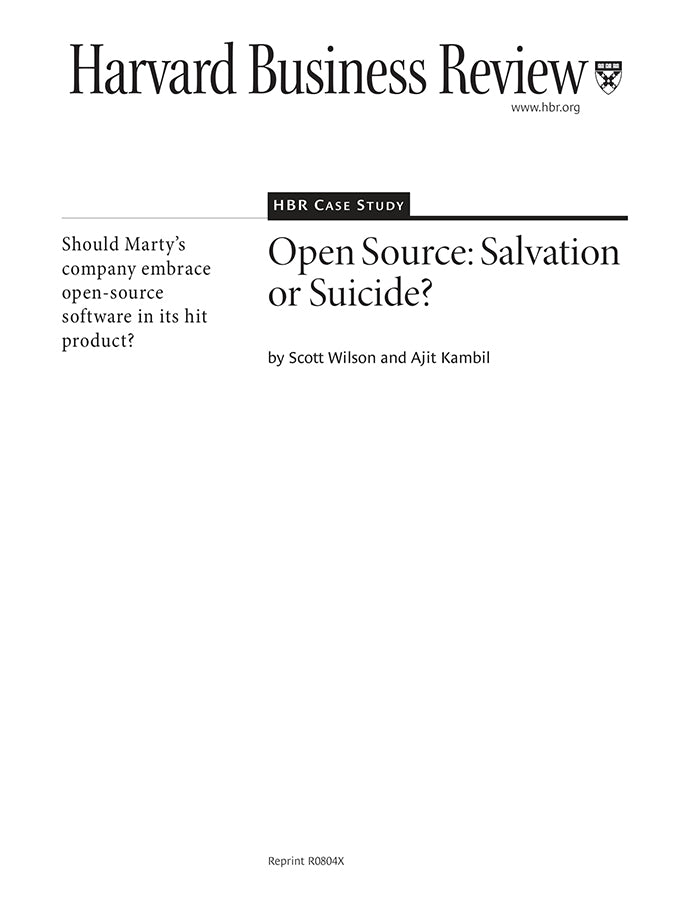Open Source: Salvation or Suicide? (HBR Case Study)
受取状況を読み込めませんでした
For teaching purposes, this is the case-only version of the HBR case study. The commentary-only version is Reprint R0804Z. The complete case study and commentary is Reprint R0804A. Amp Up, a wildly popular electronic-music game, is the brainchild of KMS's cherished programmers, who now spend their time trying to keep customers dazzled with upgrades. But a couple of start-ups have ripped off the idea using their own code - which is open source. Now they're demanding that KMS float with the rising tide and join the open-source community. How could the company make money without its IP? And why should it try? Four experts comment on this fictional case study in R0804A and R0804Z. Jonathan Schwartz, the CEO of Sun Microsystems, says that if KMS is confident it knows what its customers will want next - and if it's content with a small corner of the market - it should stay proprietary. But it will pay a reputational price. Eric Levin, the executive vice president of Techno Source, suggests that KMS take a middle path: license its software to third-party companies and add features to promote community building. This approach could fund itself through royalties or fees and would allow KMS to approve or veto third-party products. Gary P. Pisano, of Harvard Business School, points out that an open-source strategy could increase Amp Up's rate of improvement, enhance users' satisfaction with the game, and reduce KMS's development costs. But if the company stops competing on the basis of its code, it had better be sure of the strength of its downstream capabilities. Michael J. Bevilacqua, of the law firm WilmerHale, warns that KMS risks greater liability for intellectual-property infringement if it joins the open-source community, where code carries no guarantee that it doesn't infringe on someone's IP rights and providers offer no indemnification.
【書誌情報】
ページ数:6ページ
サイズ:A4
商品番号:HBSP-R0804X
発行日:2008/4/1
登録日:2011/7/29

